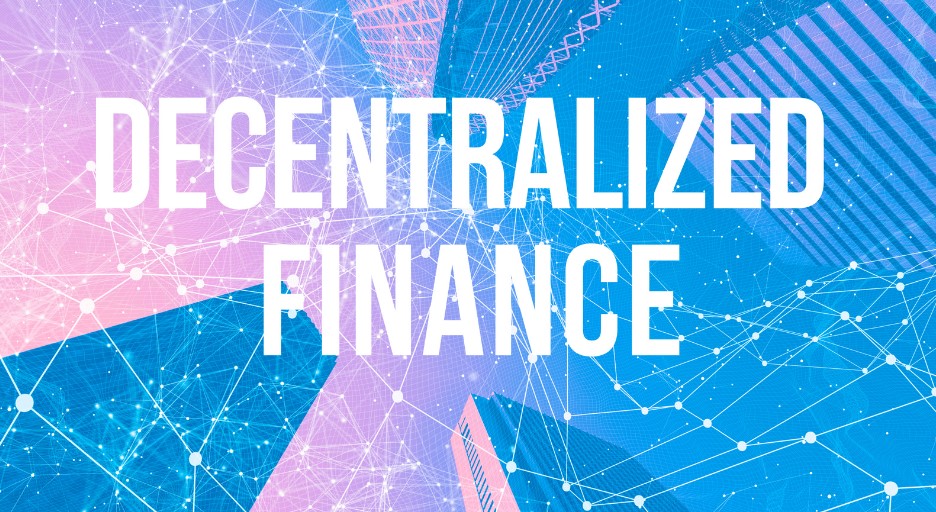
The Rise of DeFi: How Decentralized Finance is Reshaping Crypto Trading?
Welcome to the fascinating world of Decentralized Finance (DeFi), where traditional finance meets cutting-edge technology to revolutionize how we think about money. In recent years, DeFi has been making waves in the cryptocurrency space, offering new opportunities for financial freedom and innovation. Let’s dive into the rise of DeFi and explore how it is reshaping crypto trading as we know it.
What is Decentralized Finance?
Decentralized Finance, commonly known as DeFi, refers to a new financial system built on blockchain technology. Unlike traditional finance, which relies on intermediaries like banks and brokers, DeFi operates in a decentralized manner, with smart contracts executing transactions automatically.

In this innovative ecosystem, users have more control over their assets and can participate in various financial activities such as lending, borrowing, and trading directly from their wallets. Smart contracts ensure transparency and security by removing the need for trust in third parties.
Advantages of DeFi Over Traditional Finance
Decentralized Finance (DeFi) is revolutionizing how we think about financial transactions. One key advantage of DeFi over traditional finance is its accessibility to anyone with an internet connection. In contrast to traditional banking systems that may have barriers to entry, DeFi platforms are open and permissionless, allowing users from all around the world to participate in a decentralized ecosystem.
Another advantage of DeFi is its transparency. Transactions on DeFi platforms are recorded on a public blockchain, providing full visibility into each transaction’s history. This level of transparency builds trust among users and reduces the risk of fraud or manipulation often associated with centralized financial institutions.
Types of DeFi Applications
Decentralized Finance (DeFi) is a rapidly growing field within the cryptocurrency and blockchain space. There are several types of DeFi applications, each serving different purposes and catering to various financial needs. Here are some common types of DeFi applications:
- Decentralized Exchanges (DEXs): These platforms facilitate the trading of cryptocurrencies without the need for intermediaries. Examples include Uniswap, SushiSwap, and PancakeSwap.
- Decentralized Lending Platforms: These platforms allow users to lend and borrow cryptocurrencies without traditional financial institutions. Users can earn interest by lending out their assets or borrow funds by providing collateral. Examples include Compound and Aave.
- Yield Farming Platforms: These platforms enable users to earn rewards by providing liquidity to decentralized protocols. Users can stake or lock up their assets in exchange for tokens or rewards. Examples include Yearn Finance and Curve Finance.
- Decentralized Stablecoins: These are cryptocurrencies designed to maintain a stable value relative to a fiat currency like USD. Examples include DAI and USDC.
- Prediction Markets: These platforms allow users to bet on the outcome of future events, such as election results or sports matches, using blockchain technology. Examples include Augur and Gnosis.
- Insurance Platforms: These platforms offer decentralized insurance solutions that allow users to protect against smart contract failures, hacks, or other risks. Examples include Nexus Mutual and Cover Protocol.
- Decentralized Asset Management: These platforms use smart contracts to provide automated portfolio management services. Users can invest in diversified portfolios or strategies without relying on traditional fund managers. Examples include Set Protocol and Balancer.
- Decentralized Identity: These applications aim to provide users with self-sovereign identity solutions, enabling individuals to control their personal data and privacy securely on the blockchain. Examples include uPort and Civic.
These are just a few examples of the various types of DeFi applications that exist within the decentralized finance ecosystem. Each plays a crucial role in reshaping the traditional financial landscape and providing users with more control, transparency, and accessibility over their finances.
How Decentralized Finance is Reshaping Crypto Trading?
The rise of decentralized finance (DeFi) is revolutionizing crypto trading. Traditional centralized exchanges are facing tough competition as DeFi platforms offer users greater control over their funds and transactions.

With DeFi, traders can access a wide range of financial services without relying on intermediaries, making the trading process more efficient and transparent. The ability to trade directly from personal wallets opens up new opportunities for investors looking to take advantage of decentralized protocols and automated market-making systems like smart bit boost.
One of the key features of DeFi is the use of smart contracts, which are self-executing agreements that do not require intermediaries. This allows for faster and cheaper transactions, as there is no need for a third party to verify or process them.
In addition, DeFi platforms offer a wide range of financial services, including lending, borrowing, derivatives trading, and yield farming. These services are accessible to anyone with an internet connection and do not require users to go through a lengthy verification process.
DeFi also introduces new trading mechanisms such as decentralized exchanges (DEXs) and automated market makers (AMMs). DEXs allow users to trade assets directly from their wallets without having to deposit funds on an exchange. This eliminates the risk of centralized exchanges getting hacked or engaging in unethical practices.
AMMs use algorithmic formulas to automatically adjust the price of assets based on supply and demand. This creates more efficient markets and reduces the impact of whales manipulating prices.
Moreover, DeFi platforms often offer higher yields compared to traditional finance options. This is due to the open nature of these protocols, which allows for competitive interest rates on lending and borrowing activities.
However, DeFi still faces challenges, such as scalability issues and potential security risks.
Challenges and Risks Associated with DeFi
While DeFi offers exciting opportunities, it also comes with its fair share of challenges and risks. One of the main concerns is the vulnerability to smart contract bugs or hacks, which can result in significant financial losses for users. The complex nature of decentralized finance platforms makes them more susceptible to security breaches compared to traditional centralized systems.

Moreover, regulatory uncertainty remains a key challenge for DeFi as governments around the world grapple with how to regulate this rapidly evolving space. Without clear guidelines, users and developers may face legal issues or restrictions that could hinder the growth of decentralized finance in the long run.
Future Outlook for DeFi and the Crypto Market
The future outlook for DeFi and the crypto market is filled with both excitement and uncertainty. As more people become aware of the potential benefits of decentralized finance, we expect to see continued growth and innovation in this space. New DeFi projects are constantly emerging, offering novel solutions to traditional financial services.
However, challenges such as regulatory hurdles and security risks remain key considerations for the industry. The evolving landscape of DeFi will continue to shape how we perceive and interact with traditional financial systems, paving the way for a more inclusive and accessible future in finance.
Conclusion: Is DeFi the Future of Finance?
DeFi is undeniably transforming the way we think about finance and trading in the crypto world. Its innovative approach to decentralization, transparency, and accessibility has opened up a world of possibilities for individuals looking to take control of their financial assets. While there are challenges and risks associated with this nascent technology, the potential benefits far outweigh them.
As more people become aware of the advantages offered by DeFi applications, such as lending, borrowing, and trading, we expect to see continued growth and evolution in this space. The future looks bright for decentralized finance as it continues to reshape not only crypto trading but also traditional financial systems.
Whether or not DeFi becomes the dominant force in finance remains to be seen. However, one thing is certain – it has already made a significant impact on how we interact with money and investments. As technology advances and adoption increases, DeFi could very well be the future of finance that many have been waiting for.
Author Profile

- Blogger by Passion | Contributor to many Business and Marketing Blogs in the United Kingdom | Fascinated with SEO and digital marketing and latest tech innovations |
Latest entries
 TechnologyMarch 31, 2025The Future of Text-to-Speech: Transforming Communication in Healthcare
TechnologyMarch 31, 2025The Future of Text-to-Speech: Transforming Communication in Healthcare TechnologyMarch 28, 2025Top-Rated Tools Every Modern Recruiter Needs in Their Toolkit
TechnologyMarch 28, 2025Top-Rated Tools Every Modern Recruiter Needs in Their Toolkit marketingMarch 21, 2025How Businesses Can Leverage YouTube Video Makers for Marketing & Ads?
marketingMarch 21, 2025How Businesses Can Leverage YouTube Video Makers for Marketing & Ads? Online BusinessMarch 21, 2025Feature Requests as a Growth Strategy: How User Insights Drive Product Innovation?
Online BusinessMarch 21, 2025Feature Requests as a Growth Strategy: How User Insights Drive Product Innovation?

